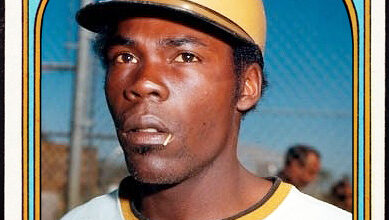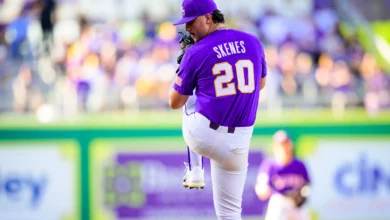

Both prospects are from the Dominican Republic, play the outfield and swing from the left side of the plate. One is 22 years old and the other will become that age in a few weeks. When they suit up in a major league uniform, both will bring their talents to teams that play in the Central Division of the National League. Gregory Polanco and Oscar Taveras have so much in common, but who is actually the better player?
When they finally get their opportunity to perform in the big leagues, there’s no question that this dynamic duo will make their presence known. Polanco, who will debut with the Pittsburgh Pirates, is the missing piece to an amazing outfield that already employs Starling Marte and Andrew McCutchen. More importantly, Polanco would add a potent bat to an anemic Bucs offense that needs to produce more runs. The 6′-4″, 240 pound slugger has hit at every minor-league level, and has currently compiled a .360/.425/.586 slash line at triple-A Indianapolis. Polanco also can fly, with five triples and 10 stolen bases to go along with his six home runs.
For his part, Taveras is an elite hitter in the St. Louis Cardinals organization who has been ranked third among prospects by MLB and Baseball America the last two years. Although an ankle injury that required surgery cut short his 2013 season, Tavares has bounced back nicely with seven big flies and an .849 OPS over 18 games for the Memphis Redbirds. He is a personable young man who loves to entertain the crowd and speaks good English.
The problem facing Taveras is the outfield at Busch Stadium is crowded. Matt Holliday, despite being a mediocre defender, plays left field because of his bat. Allen Craig patrols in right field and also pounds the ball, although his offensive numbers are down. Jon Jay and Peter Bourjos direct traffic in center, and both are faster than Taveras. Three of those guys went to the World Series last year, and Cardinals General Manager John Mozeliak is reluctant to fix something that ain’t broke.
“There’s no doubt that Oscar is playing well right now,” admits Mozeliak. “(But) are we at a point where we are taking at-bats away from the current roster and giving them to somewhere else?”
The Pirates and the Cardinals have been accused of delaying the promotions of Polanco and Taveras until after the amateur draft, thus eliminating Super 2 status and gaining an extra year before being forced to face the arbitration process. Pittsburgh General Manager Neal Huntington obviously considers Polanco a valuable commodity because he tried to reel in the youngster with a seven-year package worth $25 million during spring training. Wisely, Polanco didn’t take the bait.
Are the Cardinals waiting to call up Taveras because of the Super 2 rule? Possibly, but playing every day in the minor leagues has been the best option for the 6′-2″, 200 pound athlete. On the varsity, Taveras would only be a spot starter, lefty stick off the bench or the extra man during interleague games. That’s tough duty for a young player, and with Holliday and Craig signed through 2016, the future for Taveras in St. Louis seems uncertain.
As for who is the best player between Polanco and Taveras, there are two factors to consider. In terms of five-tool ability, the edge probably goes to Polanco. While neither guy is a defensive whiz, Gregory has the better arm and superior speed. Offense being the major strength for both, it’s hard to pick a winner in that category.
The other part of the equation is the mental aspect of the game. On the field, the tightly wired Polanco is like a thoroughbred race horse with blinders on. Off the field, however, he has a tendency to get distracted with elements out of his control. That leads some scouts ponder how Polanco will react to failure at a higher level, and whether he can control his emotions.
Taveras, by comparison, is a carefree spirit who has tremendous ability and is well aware of it. While popular with teammates, Oscar tends to beat to his own drum, something that I believe annoys starch-collared Cardinal executives. That said, Taveras is not fazed or intimidated by anything and when things go south, he’s capable of making adjustments. That skill should serve him well while adapting to major league pitching.
It’s been six years since this twosome hit their way off the island and signed free-agent contracts as teenagers. Polanco received a bonus of $175,000 and Taveras banked $145,000. That money is long gone, but their dream of making it to the show is a reality that will happen sooner than later. That’s when you folks can decide for yourselves who deserves the higher marks.
Meanwhile, I’ll make the bold prediction that both prospects will be big-league superstars for many years to come.





